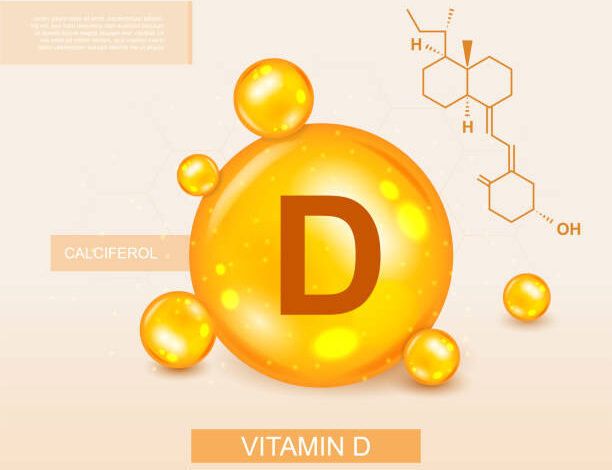Instances Requiring Vitamin D Supplementations
Instances Requiring Vitamin D Supplementations

Vitamin D
Getting one of your daily vitamin D supplementations from the sun is remarkably convenient. While most vitamins are typically obtained through dietary sources, vitamin D—also known as the “sunshine vitamin”—can be easily acquired by simply soaking up those rays. In addition, it supports healthy immune function, especially during the winter months, and maintaining optimal levels of vitamin D can contribute to an overall sense of well-being.”
The adequate intake of the sunshine vitamin is considerably more complex than it initially appears in practicality. Environmental variables, seasonal fluctuations, specific health conditions (such as the risk of skin cancer), and geographical location collectively determine the actual amount of vitamin D obtained throughout the day. Therefore, how can an individual ensure they are receiving sufficient vitamin D, and when is it advisable to consider vitamin D supplementation?
Key Factors Influencing Vitamin D Levels
As outlined by the National Institutes of Health (NIH), vitamin D plays a crucial role in facilitating the absorption of calcium in the gut and supporting overall bone health. Adequate vitamin D intake is also associated with a potential reduction in bodily inflammation.
According to a 2022 article in Frontiers in Nutrition, the prevalence of vitamin D deficiency in the United States ranges from 2.6% to 22%. Moreover, approximately 41% of individuals have vitamin D insufficiency, which means their levels do not reach deficiency but are suboptimal. Gillean Barkyoumb, M.S., RDN, highlights that insufficient sun exposure due to reduced time spent outdoors and increased awareness of sun exposure risks, leading to protective measures such as wearing hats, using sunscreen, and seeking shade, contributes to the insufficient intake of vitamin D. Additionally, she emphasizes that the signs and symptoms of vitamin deficiency in adults, such as fatigue, bone pain, muscle soreness, and mood changes, can easily go unnoticed.
Individuals aged 65 and above, with dark skin, or who are homebound and cannot rely on sun exposure for vitamin D should contemplate taking a vitamin D supplement. Other variables, including season and environmental influences, can also contribute to insufficient levels.

According to Huma Chaudhry RD, LDN, our skin can produce vitamin D3 through exposure to UVB sunlight. However, this synthesis process can be influenced by factors such as skin melanin content, air pollution, weather variations, sunscreen use, and geographic location.
Another way to acquire vitamin D is through certain foods, including fatty fish, egg yolks, UV light-exposed mushrooms, fortified cereals, and milk. Given the limited nature of these food sources, obtaining sufficient vitamin D solely through diet can be challenging for many individuals.
8 Factors That Can Heighten the Risk of Vitamin D Deficiency
Effect of Aging on Bone Health
As individuals age, they experience changes in bone density and mass. Up to the age of 25, there is a gradual increase in bone density, which stabilizes between 25 and 50 years old. However, after the age of 50, there is a more rapid breakdown of bone (resorption), necessitating adequate intake of vitamin D and calcium to maintain bone strength.
Insufficient levels of these essential nutrients can lead to weakened skeletal structure, increasing the risk of falls and injuries due to reduced calcium absorption. Furthermore, aging alters the production and metabolism of vitamin D, and older individuals are less likely to receive adequate sun exposure necessary for its synthesis. A study published in 2022 in Endocrine suggests that older adults may benefit from daily low-dose vitamin D supplementation in such cases.

Depression
According to Chaudhry, low levels of vitamin D have been associated with heightened symptoms of mood disorders such as depression. Including time spent in nature, incorporating vitamin D-rich foods into one’s diet, and possibly using a supplement can often become part of one’s mental health treatment plan.
Osteoporosis and Osteopenia
The human body continually regenerates and replaces bone tissue as it ages. When the body’s ability to generate new bone tissue diminishes, the risk of developing osteoporosis increases. This condition causes bones to become fragile, elevating the likelihood of fractures, as stated by the Centers for Disease Control and Prevention. Osteopenia, characterized by decreased bone mineral density, represents a milder form of bone weakening.
“Vitamin D is widely recognized for its role in promoting bone health and can be utilized in the management of bone conditions such as osteoporosis and osteopenia,” noted Chaudhry.
Neurological Disorders
A 2023 article in Biomedicine & Pharmacotherapy highlights the role of vitamin D as a neurosteroid in the body, essential for brain development and function. Low vitamin D levels have been linked to an increased risk of neurological conditions, including Alzheimer’s, Parkinson’s, epilepsy, and multiple sclerosis.

Malabsorption Disorders
Several malabsorption disorders, including cystic fibrosis, celiac disease, and short bowel syndrome. Inflammatory bowel disease can lead to a severe deficiency of vitamin D. As outlined in a 2015 review in the Journal of Digestive Disease. These conditions hinder the absorption of certain nutrients, making it necessary for individuals with malabsorption disorders to consider supplementation to obtain sufficient vitamin D and prevent other deficiency-related complications.
Kidney and Liver Conditions
According to Barkyoumb, kidney and liver conditions can lead to a decrease in the enzymes. Necessary for converting vitamin D into a usable form, potentially resulting in a deficiency.
Recent research has associated low levels of vitamin D in the blood with the potential development of non-alcoholic fatty liver disease (NAFLD). A meta-analysis published in Frontiers of Pharmacology in 2021 concluded. That supplementing with vitamin D could be an effective approach for individuals managing NAFLD.
Pregnancy
According to Jamie Adams, M.S., RD, LDN, pregnant women need to ensure they have an adequate intake. Vitamin D is due to the specific requirements of the fetus. Multiple clinical studies have shown that sufficient vitamin D intake can enhance fetal growth and development. As well as contribute to better health outcomes for mothers. Vitamin D plays a critical role in fetal development, bone health, and immune function. The increased demand for vitamin D during pregnancy is necessary to support the growing fetus and maintain maternal health.
The Advantages of Vitamin D Supplementation
Thankfully, it is possible and convenient to supplement with vitamin D. Vitamin D supplements can supply an ample amount of the vitamin for daily or weekly needs. Since vitamin D is a fat-soluble vitamin, assisting the body in maintaining calcium and phosphorous through fat absorption. It does not get excreted from the body when you urinate, unlike water-soluble vitamins. This means that you can take a higher dosage of vitamin D once. Or twice a week to ensure sufficient levels.
According to Dr. Stokes, when purchasing a vitamin D supplement, it is advisable to seek out vitamin D3. Also known as cholecalciferol, which is the more readily absorbed and utilized form of vitamin D.
Determining the appropriate dosage is a discussion best had with a healthcare professional. Who is familiar with your specific requirements, and health practices? And existing exposure to vitamin D without supplementation.

Recommended Vitamin D Intake and Dosage Guidelines
To ensure adequate vitamin D levels. The recommended daily value for the average individual (aged 1-70) is 15 micrograms (or 600 IU) per day. For adults aged 71 and over, the recommended intake is 20 micrograms (800 IU). However, given the challenges of obtaining sufficient sunlight exposure. Or vitamin D through diet alone, the use of a supplement may be prudent.
It is important to note that the appropriate dosage of vitamin D. From a supplement can vary depending on several factors. Therefore, it is recommended to seek guidance from your healthcare provider. Before initiating supplementation determine the most suitable dosage for your individual needs.
Stokes emphasizes that the most crucial factor in selecting the right vitamin D supplement is to have your vitamin D levels assessed through a simple blood test. This will enable you and your healthcare provider to determine the correct potency and frequency for your vitamin D supplementation.

Conclusion
Obtaining the recommended daily amount of vitamin D can be complicated under certain circumstances. Despite the easy access through sun exposure. In addition to dietary sources, individuals with specific conditions such as neurological disease. Kidney and liver disease, malabsorption disorders, rickets, or mental health issues like depression may benefit from vitamin D supplementation. Adequate vitamin D intake is particularly important during aging and pregnancy to reduce the risk of injuries and fetal conditions.
It is essential to seek guidance from a healthcare professional to determine the most suitable vitamin D. Supplementation for your specific requirements, considering the various factors involved.






This entrance is phenomenal. The splendid substance displays the maker’s dedication. I’m overwhelmed and anticipate more such astonishing sections.